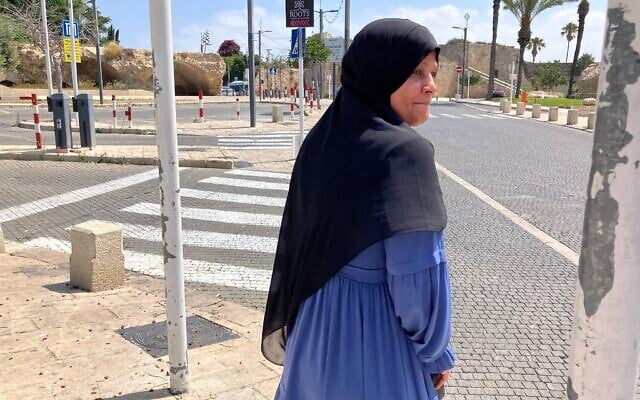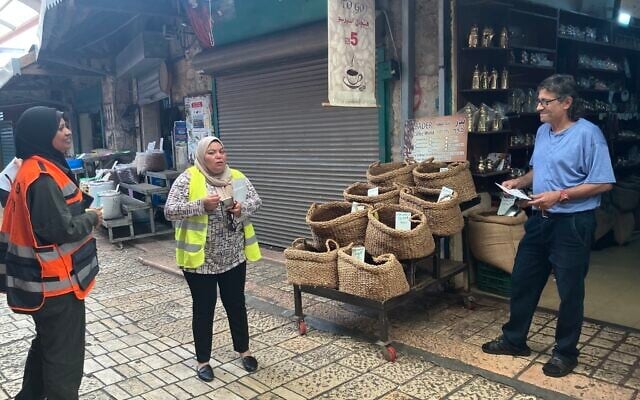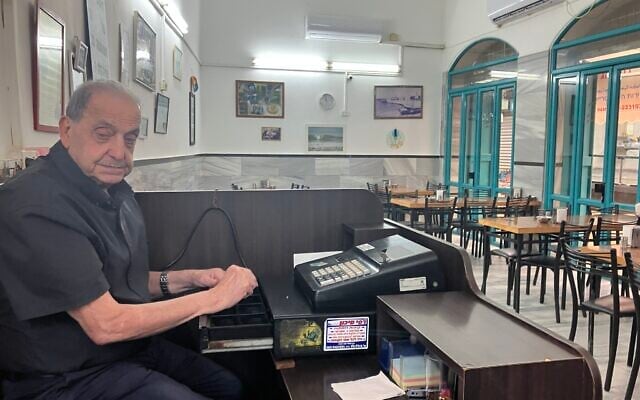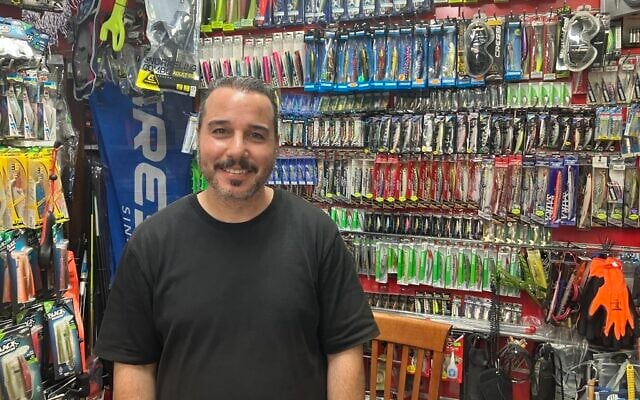


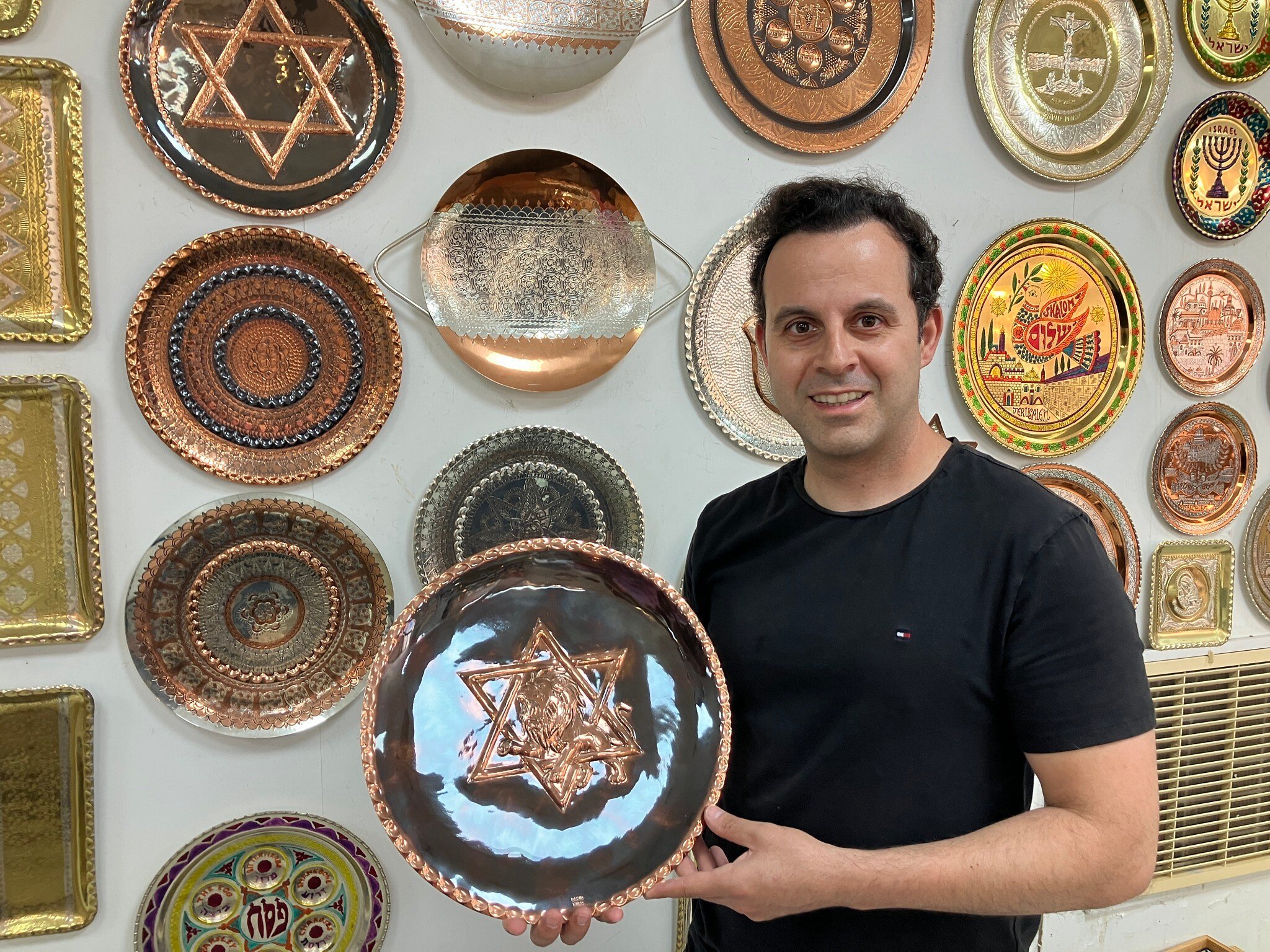
ACRE — Fourth-generation coppersmith Dror Miro sat at his work table at the edge of the bazaar on Monday, hammering a design of a lion against the Star of David.
“I started making this design six months before Operation Rising Lion,” said Miro, 40, referring to the Israel-Iran war that began on June 13 when Israel launched a surprise attack on Iran’s nuclear program.
Iran has answered Israel’s ongoing pinpoint strikes with indiscriminate ballistic missile fire at Israeli population centers, which have so far killed 24 people and injured hundreds, according to Israeli authorities.
The residents of Acre, a mixed city of 65,000 that is about 65% Jewish and 35% Arab, spoke to The Times of Israel with a combination of resignation, patience, awareness that they shared the same fate, and a sense of nostalgia for days when things were quiet and the streets were bustling.
“There are no tourists now?” Miro said, echoing this reporter’s question. “It’s been empty for the past two years. There is nothing.”
Miro said that storeowners were just beginning to get back on their feet after rioting and destruction in 2021 that saw more than a dozen Jewish-owned businesses burned in Acre’s old city, which has been designated as a UNESCO World Heritage site.
“All of us, Jews and Arabs, all of us, just want to work,” Miro said.
Early Sunday morning, a missile attack claimed the lives of three Muslim women and a girl in Tamra, a predominantly Muslim town located 17 kilometers (10.5 miles) east of Acre.
The strike was fresh in the mind of Victoria, who declined to give her last name as she stopped to talk for a few minutes before heading to a doctor’s appointment.
Victoria cited Prime Minister Benjamin Netanyahu’s rebuke for a video circulating on social media of presumably Jewish Israelis celebrating after the strike on the nearby Arab-Israeli town.
“In a war, we have to be together,” Victoria, 60, said. “We need a strong Israel, so we need to be strong together.”
Two municipal workers walked through the bazaar, passing out an informational page about what to do in case emergency sirens go off, signaling incoming Iranian ballistic missiles.
“If there are sirens,” said Deeb Bader, grinding coffee beans in his alcove coffee shop, “we need to go under the Knights Hall,” a stone building built in the 12th century that felt like a fitting place to seek shelter.
Bader said he spent several years living in California.
“There, we lived through several earthquakes, and here we live through the wars,” Bader said.
Most shops in the bazaar were shuttered except for several produce vendors.
A stray cat lounged on display shelves that normally held merchandise.
Even Hummus Said — which sometimes has a line snaking out the door of patrons waiting for its popular chickpea spread — was vacant.
“We hope it will get better,” said Said Abu Bakar, sitting in his usual spot at the cash register. “We can’t give up.”
Without the usual crush of customers, Abu Bakar had time for a leisurely talk. He joked that it was better back when “everyone spoke Yiddish,” a language his father spoke fluently.
In a shop selling equipment for fishermen and swimmers, Mohammed Bayaa, 40, said that people still go to fish “not to catch fish but to sit by the sea and escape the situation.”
The store was started by Bayaa’s father 40 years ago.
He said he’d like to “delete” the last five years of his life.
“First there was COVID-19, then the riots, and now the war for the past two years,” he said.
Bayaa grew up in Acre and spoke fondly of the days of his childhood, when he and his family celebrated Jewish holidays with neighbors and friends.
He sometimes thinks about leaving Israel with his wife and three children and moving to Europe.
“But this is my country,” he said. “I have a sense of belonging that I don’t know if I’d have anywhere else.”
He said he hopes that in the future we will look back and say that “this was a hard time in history.”
“I hope one day there will be peace with Lebanon, Syria, Iraq and even Iran,” Bayaa said. “I think it will get worse for a while and then it will get better.”

